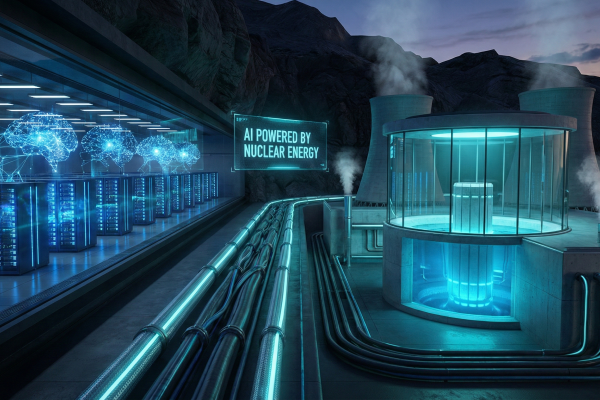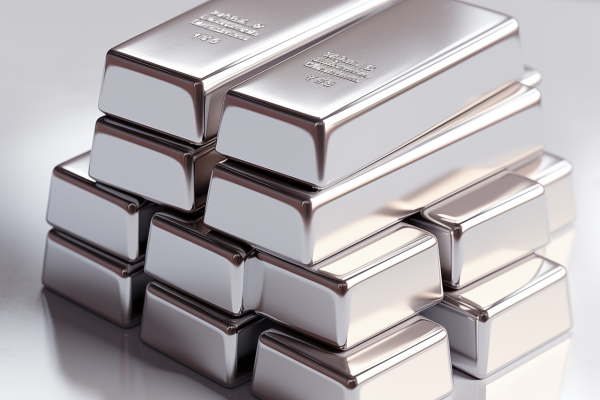September 22nd, 2025 | 07:15 CEST
Serbians don't want mines – Are Europe's battery supply chains at risk? BYD, BMW and European Lithium
A recent article in the Frankfurter Allgemeine Zeitung (FAZ) reveals that the vast majority of Serbians oppose lithium mining in the country. The Journal for International Politics and Society cites a survey according to which 55% of Serbians are against a lithium mine in the Jardar Valley – only 25% are in favor of it. The latest media report paints an even bleaker picture. According to the report, the various population groups in Serbia have rarely been as united as they are in their opposition to the mine. But what does this mean for European battery supply chains? Which companies will be penalized, and which will benefit? We analyze the situation.
time to read: 3 minutes
|
Author:
Nico Popp
ISIN:
BYD CO. LTD H YC 1 | CNE100000296 , BAY.MOTOREN WERKE AG ST | DE0005190003 , EUROPEAN LITHIUM LTD | AU000000EUR7
Table of contents:

"[...] China's dominance is one of the reasons why we are so heavily involved in the tungsten market. Here, around 85% of production is in Chinese hands. [...]" Dr. Thomas Gutschlag, CEO, Deutsche Rohstoff AG
Author
Nico Popp
At home in Southern Germany, the passionate stock exchange expert has been accompanying the capital markets for about twenty years. With a soft spot for smaller companies, he is constantly on the lookout for exciting investment stories.
Tag cloud
Shares cloud
Good market opportunities, but Serbians agree: "There will be no digging here."
Batteries for electric vehicles are a growth area. According to Deloitte estimates, the market for electric vehicle batteries in Europe is likely to triple to around EUR 54 billion by 2030. Today, 70% of all batteries come from China, with only around 13% of production coming from Europe. And even on the European continent, Asian manufacturers dominate. In this way, Europe is giving away large parts of the value chain – the battery is the most expensive component in electric vehicles and also represents the most important difference for many customers in terms of technology. This is another reason why the then German Chancellor courted Serbia in July 2024 – the lithium deposits there were to become part of European supply chains. Serbia's government also supported the plan and intended to refine the raw material domestically.
But even then, protests were mounting. And they continue to this day. As the FAZ writes, almost all population groups in Serbia reject mining. This includes hipsters from Belgrade as well as farmers from the countryside, all of whom are concerned about being taken advantage of by wealthy Europe. Although observers within Serbia agree that all parties involved in mining projects with appropriate environmental regulations would benefit, this message is not getting through. The focus is therefore shifting to projects that have already been approved. These include the Austrian Wolfsberg mine, which is scheduled to go into production in 2027. Years ago, operator European Lithium announced that all the necessary permits for the start of production had been obtained. With BMW, it even has a potential customer that has contributed capital.
European Lithium: Approved Wolfsberg mine comes into focus
The Wolfsberg project in Carinthia is set to become more than just a mine. A preliminary feasibility study envisages two operational units – underground mining for the extraction of spodumene concentrate and a hydrometallurgical plant for the production of battery carbon and lithium hydroxide. As a new environmental impact assessment was not necessary, Wolfsberg is effectively considered Europe's first lithium mine. And European Lithium's plans go even further: the raw materials are to be shipped to Saudi Arabia and refined there in collaboration with a local partner, thanks to cheap solar energy. They will then be made available to the planned European battery factories.
The total volume involved is 8,800 tons of lithium hydroxide monohydrate per year. According to the US Geological Survey, the global supply in 2024 totaled 240,000 tons of the raw material.
With the construction of a mine in Serbia becoming increasingly unlikely and the mood in neighboring Bosnia, where lithium deposits also lie dormant, anything but mining-friendly, battery manufacturers and automakers are under pressure to act. Even Chinese auto giant BYD, which traditionally covers large parts of the value chain, is looking to Europe. New plants are planned in Hungary and Turkey. BYD Vice President Stella Li recently announced at the IAA motor show that within "two to three years," all electric vehicles built for Europe will be produced locally in order to avoid EU import duties. The supply of lithium could therefore also become a bottleneck for BYD.
Mini-valuation + rare earth fantasy: What is in store for European Lithium's stock?
Although European Lithium's stock has recently gained significantly, it is still trading around 10% below its level of three years ago. Analysts, including First Berlin, see upside potential of 100% or more. With a market capitalization of less than EUR 80 million, the stock is at least worth considering – an approved lithium project in the heart of Europe should be valuable in itself, especially given the headwinds for mines in other countries. European Lithium's indirect stake in the promising Tanbreez rare earth project in Greenland provides additional appeal.
Conflict of interest
Pursuant to §85 of the German Securities Trading Act (WpHG), we point out that Apaton Finance GmbH as well as partners, authors or employees of Apaton Finance GmbH (hereinafter referred to as "Relevant Persons") may hold shares or other financial instruments of the aforementioned companies in the future or may bet on rising or falling prices and thus a conflict of interest may arise in the future. The Relevant Persons reserve the right to buy or sell shares or other financial instruments of the Company at any time (hereinafter each a "Transaction"). Transactions may, under certain circumstances, influence the respective price of the shares or other financial instruments of the Company.
In addition, Apaton Finance GmbH is active in the context of the preparation and publication of the reporting in paid contractual relationships.
For this reason, there is a concrete conflict of interest.
The above information on existing conflicts of interest applies to all types and forms of publication used by Apaton Finance GmbH for publications on companies.
Risk notice
Apaton Finance GmbH offers editors, agencies and companies the opportunity to publish commentaries, interviews, summaries, news and the like on news.financial. These contents are exclusively for the information of the readers and do not represent any call to action or recommendations, neither explicitly nor implicitly they are to be understood as an assurance of possible price developments. The contents do not replace individual expert investment advice and do not constitute an offer to sell the discussed share(s) or other financial instruments, nor an invitation to buy or sell such.
The content is expressly not a financial analysis, but a journalistic or advertising text. Readers or users who make investment decisions or carry out transactions on the basis of the information provided here do so entirely at their own risk. No contractual relationship is established between Apaton Finance GmbH and its readers or the users of its offers, as our information only refers to the company and not to the investment decision of the reader or user.
The acquisition of financial instruments involves high risks, which can lead to the total loss of the invested capital. The information published by Apaton Finance GmbH and its authors is based on careful research. Nevertheless, no liability is assumed for financial losses or a content-related guarantee for the topicality, correctness, appropriateness and completeness of the content provided here. Please also note our Terms of use.




